It has not yet been recorded that any human being has gained a very large or permanent contentment from meditation upon the fact that he is better off than others.
Sinclair Lewis, Main Street (1920).
Sinclair Lewis
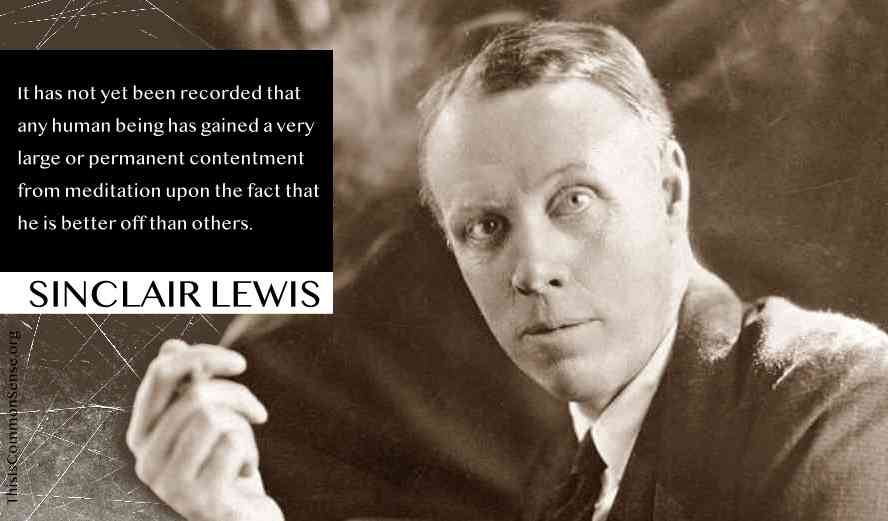

It has not yet been recorded that any human being has gained a very large or permanent contentment from meditation upon the fact that he is better off than others.
Sinclair Lewis, Main Street (1920).
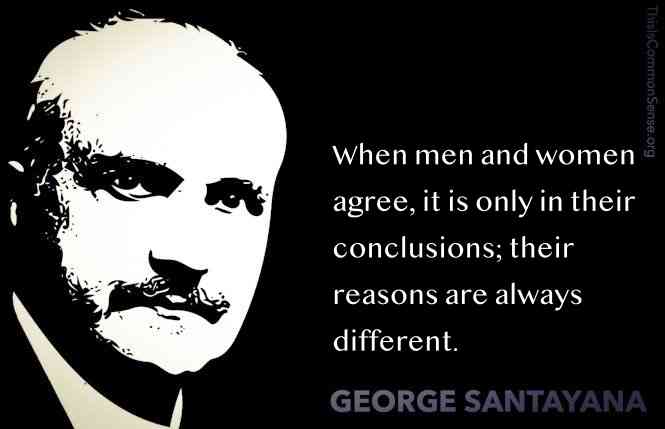
When men and women agree, it is only in their conclusions; their reasons are always different.
George Santayana, The Life of Reason; or, The Phases of Human Progress, Volume II: Reason in Society (1905), Chapter VII, “Free Society.”
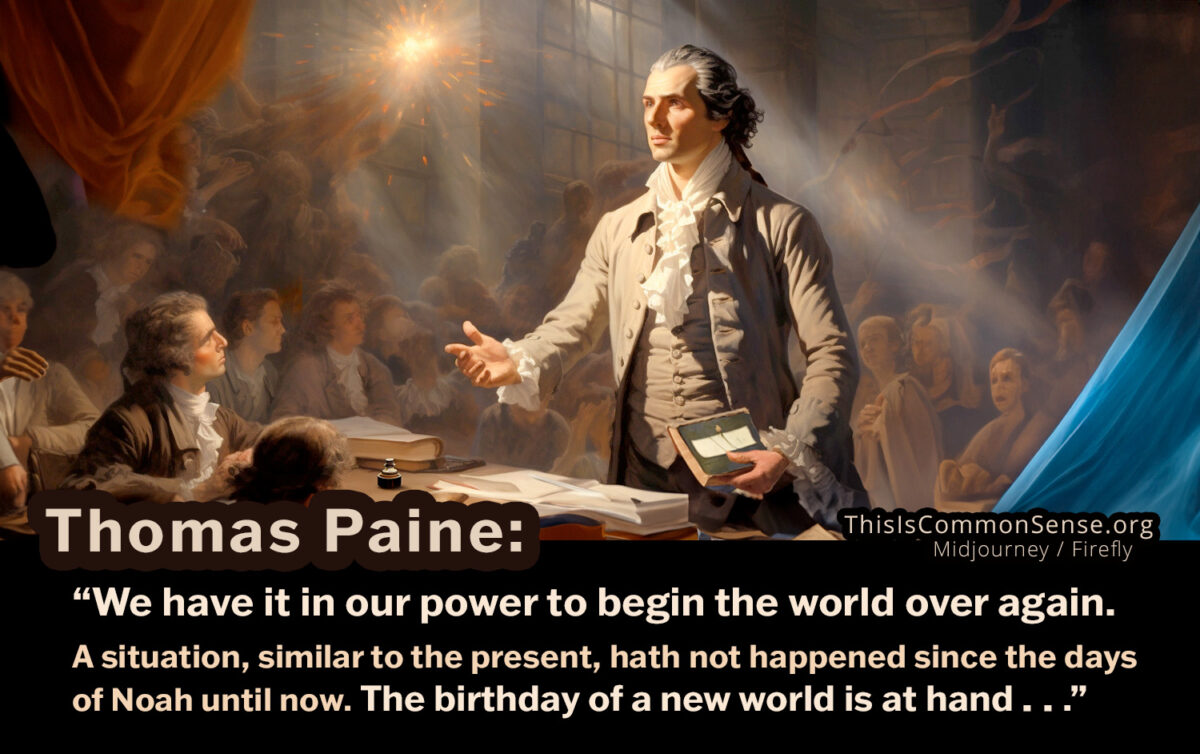
“We have it in our power to begin the world over again. A situation, similar to the present, hath not happened since the days of Noah until now. The birthday of a new world is at hand, and a race of men, perhaps as numerous as all Europe contains, are to receive their portion of freedom from the events of a few months. The reflection is awful, and in this point of view, how trifling, how ridiculous, do the little paltry cavilings of a few weak or interested men appear, when weighed against the business of a world.”
from “Common Sense” by Thomas Paine
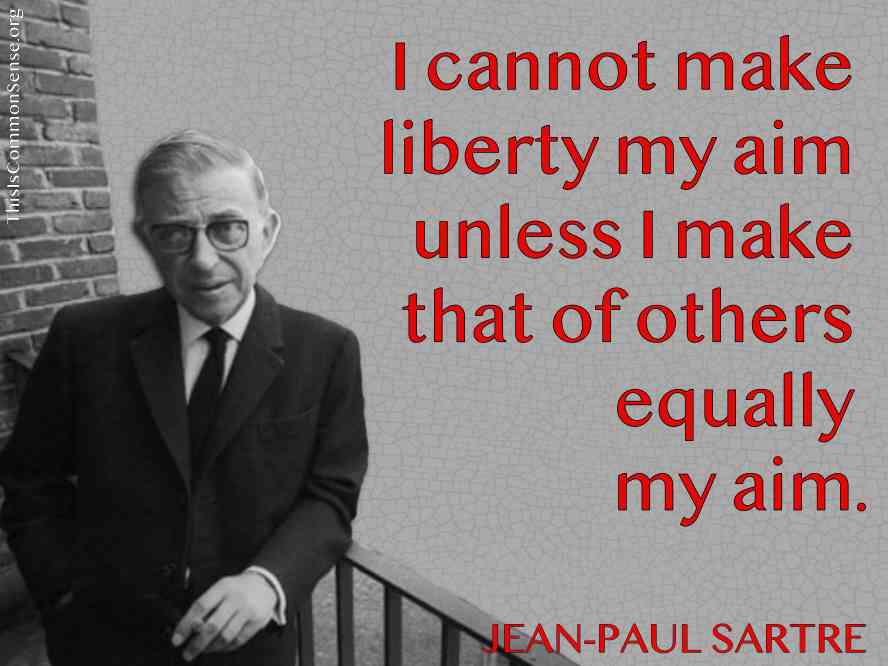
We will freedom for freedom’s sake, in and through particular circumstances. And in thus willing freedom, we discover that it depends entirely upon the freedom of others and that the freedom of others depends upon our own. Obviously, freedom as the definition of a man does not depend upon others, but as soon as there is a commitment, I am obliged to will the liberty of others at the same time as my own. I cannot make liberty my aim unless I make that of others equally my aim.
Jean-Paul Sartre, Existentialism Is a Humanism (1946).

Just tell the truth, and they’ll accuse you of writing black humor.
Charles Willeford, personal motto, quoted in Marshall Jon Fisher, “The Unlikely Father of Miami Crime Fiction,” The Atlantic Monthly, May 2000.
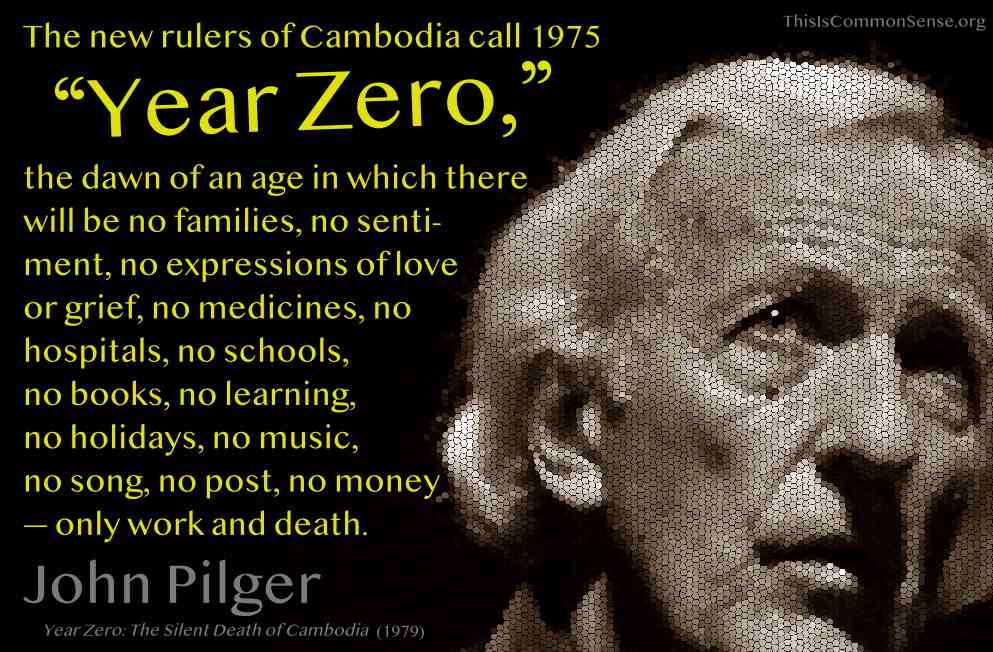
The new rulers of Cambodia call 1975 “Year Zero,” the dawn of an age in which there will be no families, no sentiment, no expressions of love or grief, no medicines, no hospitals, no schools, no books, no learning, no holidays, no music, no song, no post, no money — only work and death.
John Pilger, Year Zero: The Silent Death of Cambodia (1979).